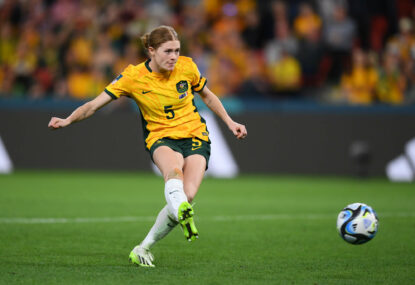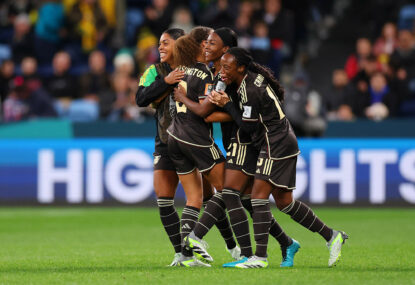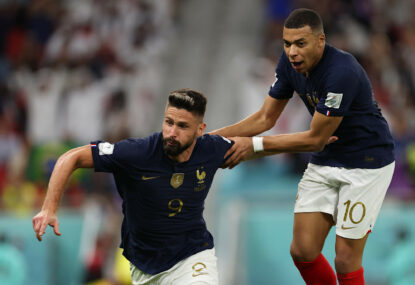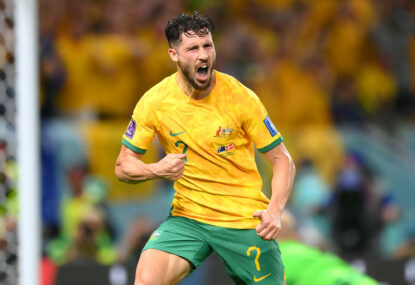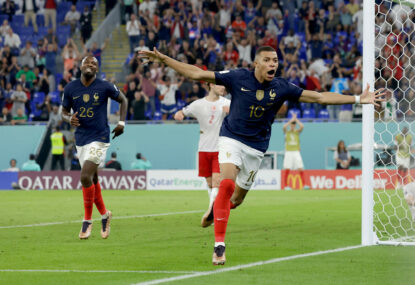As a lead-up to Euro 2021, I will recap the five Euros that I’ve seen since I started caring about football.
“Seen” is a relative term, since the European Championship hasn’t been on free-to-air in Australia since 1996.
The tragedy of a generation
With the background of Spanish club dominance we headed into Euro 2000, where Holland at home would hopefully sweep in and win a trophy not just for themselves but for the players who had come before them a decade ago and in the 1970s, as well as the long-suffering orange masses that filled the stadium. But they stuttered through their first two matches (their opening 1-0 win over a superior Czech Republic on a petty 89th-minute penalty was an outright joke).
They were led by a rookie coach who did have the credentials as a player and would prove his unflappability on the other side of the fence five years later with Barcelona, Frank Rijkaard. But this early in his coaching career it probably cost them, perhaps summed up by his insertion of old mate but goal-scoring non-factor Aron Winter with Holland desperate for a goal, any goal, against Italy in the semi-final.
Nonetheless, beating France B in their third match led in to perhaps the tour de force of international football over the last decade or two, the 6-1 swamping of Yugoslavia, a result and scene so vivid that it was eulogised in Salman Rushdie’s novel Fury. The feeling was that Holland were mere days away from their undoubted coronation in a jubilant orange stadium.
Dennis Bergkamp, who ironically did not score a goal in the entire tournament, exhibited yet again the genius of his thinking and passing. Edgar Davids did much the same thing but with more bite, as well as with a new sunglasses-style look, handily prescribed for an eye injury. Marc Overmars showed what an indispensable player he was, scoring the final two goals and flying down the wings. Patrick Kluivert, a skilled all-around forward, scored the first four goals of the match, subsequently reduced to three, and the world looked his and their oyster.
Then came the match that would make the dreamers weep, the game that killed the golden orange generation. A battling Italy focused purely on keeping the marauding Holland out, and the 0-0 win on penalties was a bonus (less charitable people would use stronger words like ‘travesty’). Holland missed two penalties during the match and then a further three in the penalty shootout, before which everyone already knew their fate was sealed.
Author David Winner wrote in Brilliant Orange how he put his coat on before the shootout and stood watching it next to the door in the corner, wanting a quick escape. From there he slowly pedalled his bicycle through the orange streets of silent people wearing their no longer funny orange wigs, some shouting into their phones: “But how could they do it? How can you miss five penalties in one game?”
The dream final had not come about, that concept in football that never happens and even when it does, something always gets ruined: Arsenal’s keeper was sent off against Barcelona in 2006, Ronaldo had his dramas and Brazil didn’t show up in 1998, Real Madrid and Milan didn’t meet around the 2003 to 2004 area and Holland would never throw down against France. On the same day six-goal Holland rewrote the manual on how to play football, France revealed their own gritty greatness by eliminating the flavour of the moment, Spain, 2-1 in the other quarter-final.
Henry restores the lost World Champions
France had hit rock bottom in the year between their two tournament victories, only beating postmen and bankers Andorra 1-0 on a non-existent penalty in the 85th minute and qualifying for Euro 2000 due to a terrible goalkeeper error in Moscow. They fortuitously then cobbled everything back together only one match before the tournament began. Zidane had taken a year and a half to get over his hangover but eventually rediscovered his touch.
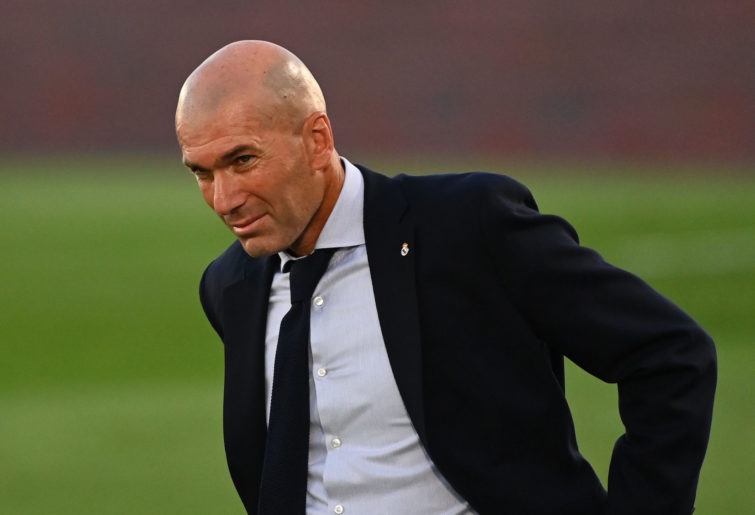
(Photo by GABRIEL BOUYS/AFP via Getty Images)
Young forward Thierry Henry, meanwhile, had similarly wasted a year and a half finding his way to – via detours – and finding his feet at the club of his fantasy, Arsenal, playing zero part in France’s travails between the two tournaments, supplanted by far inferior strikers. He spent months as Arsenal’s fourth-choice striker, depressed that he would ride home from matches in his Arsenal tracksuit on London’s tube and no one would even recognise him.
It seems incredible to think this now. I remember a commentator stating at the time that he was the player with the highest shots-to-goals ratio in the entire Premier League, but eventually he cottoned on and went from unbearable to unstoppable in weeks, epitomised by Arsenal’s strolling progress through the UEFA Cup that year.
He was a speedy all-action, all-position forward, often drifting to the left wing to provide assists to his teammates as was his wont as an ex-winger. He was everywhere, the most exciting forward in Europe, constantly zipping forward with his tall dribbler’s gait, a very vertical player who achieved best results when the ball and the play in general were delivered at speed, which was the opposite of Zidane’s game. The two French champions would consequently never combine well, to France’s detriment.
France’s last practice match before the tournament began featured a front duo of Henry and Nicolas Anelka, a forward line that was the future of France, or so it seemed. They beat Morocco 5-1, then tried the trick in the opening match against Denmark. Henry scored a scorching goal in which he ran half the length of the field, burning the Danish backline, opening his body and placing the ball to the far right post in his typical manner over the years.
He never fell out of favour again, whatever France’s sudden other myriad options up front, amazingly the opposite situation of their 1998 team. Henry was in, rubber-stamped after the Denmark match. Anelka was too but was soon to lose his place. The slightly older attacking midfielder Youri Djorkaeff, a glorified passenger in the 1998 team, woke up in 2000 and scored the winning goal in two crucial matches.
The in-form France-based contingent of forwards David Trezeguet and Silvain Wiltord and attacking mid Robert Pires languished on the bench, much as they had in 1998, but all three proved alert and vital when suddenly required in emergencies, fabricating France’s final three goals of their Euro 2000 in desperate circumstances when France’s A team had been nullified.
Spain 4-3 Yugoslavia, the greatest ever match
Euro 2000, in general, featured a series of 3-2 victories and 3-3 ‘losses’ (debutants Slovenia blew a 3-0 lead in six minutes against Yugoslavia), culminating in what was briefly considered the greatest match ever. Spain, despite having an excellent team that year had incredibly flunked out of the group stage of France 98 and had lost their opening match at Euro 2000. Unless they beat Yugoslavia in the final group game, history would repeat itself and they would again be eliminated in the group stage, an exasperating occurrence for a team who had, for example, defeated Austria 9-0 in qualification.
In the 93rd minute of the back and forth attack-fest they were down 2-3 to Yugoslavia and were done. Then Spain were gifted a penalty, quickly converted, and a minute later journeyman Alfonso somehow side-volleyed the ball through a penalty area in which almost all 22 players were encamped. 4-3, the greatest comeback ever, the greatest match ever, perhaps.
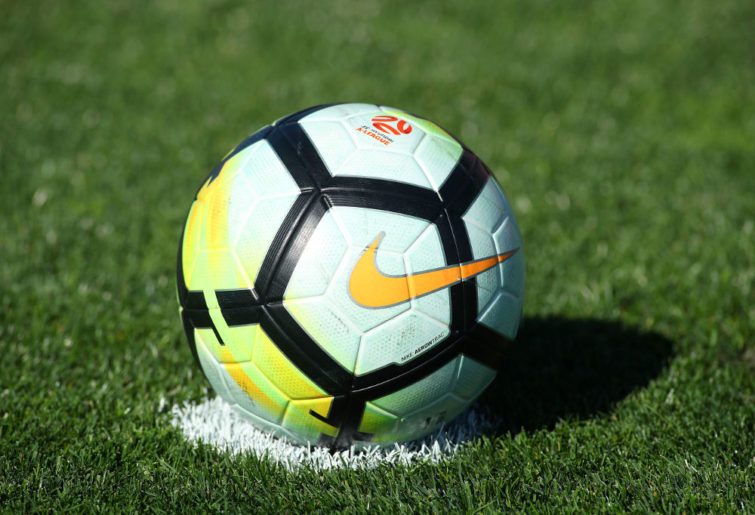
(Tony Feder/Getty Images)
Spain euphoria gripped the European Championship for a few days, while France had somewhat gone off the boil, but France steeled up for their subsequent quarter-final and won an epic showdown 2-1.
France were driven in by their new leaders: Zidane played a game that had the critics suddenly purring about his place in the pantheon, and the young but accomplished Patrick Vieira had usurped his mate Emmanuel Petit in centre mid. He was the archetypal dominant man in the middle and was already a captain in the making; a man even the belligerently sensitive Zlatan Ibrahimovic would state in his autobiography that one could always depend on.
Vieira’s bullocking run and slide-rule pass set up Djorkaeff’s winning goal on halftime, but France and Spain buckled in for an entire second half of a tense, ‘we shall not be moved’ arm wrestle. Though always threatened, you could sense the power of the French team as they resisted a talented opposition, the hunger and indomitability of those unflappable famous names working in tandem. Given the scrambling way they won their last two matches against Portugal and Italy, the Spain match was probably France’s flagship performance at Euro 2000.
Spain were gifted their third ridiculous penalty in a row on full time, but Raul missed it, putting it over the top. It was the emblematic moment of his Spain career, for despite being the world’s most accomplished forward from 2000 to 2003 with Real Madrid he never quite got there in five tournaments with Spain despite a brilliant goal in his debut World Cup match in 1998. His main chance was 2002, a World Cup in which he was in form and scored regularly, but he was injured in Spain’s quarter-final and without him a suddenly uninspiring Spain were eliminated.
That was that, because after the 2003 season Raul was mysteriously never the same player. Spain in fact immediately took flight upon getting rid of him years later.
The B-team title
Zidane and Henry were named man of the match of the semi-final and final respectively, and both scored in that 2-1 victory against Portugal, but in the end the trophy was really won by the aforementioned bench warmers. In the 115th minute of the semi-final against Portugal Trezeguet played in Wiltord whose shot was handled on the line; Portugal had an angry meltdown as Zidane easily scored the penalty.
France had to come from behind to beat both Portugal and Italy in extra time, something that was becoming more and more difficult to do in the modern game (only one match at France 98 was won by the team trailing at halftime) and looked impossible with time all but at an end and a more furiously committed Italy leading France 1-0 in the final, Italy having blown numerous chances to seal the title.
Then in the 93rd minute and the tournament all but lost, Trezeguet’s header again played in Wiltord, who drilled in – almost saved by hitherto hero Francesco Toldo – the most important and unexpected goal of his life, confusing my opinion of him when he turned out to be a slightly second-tier player.
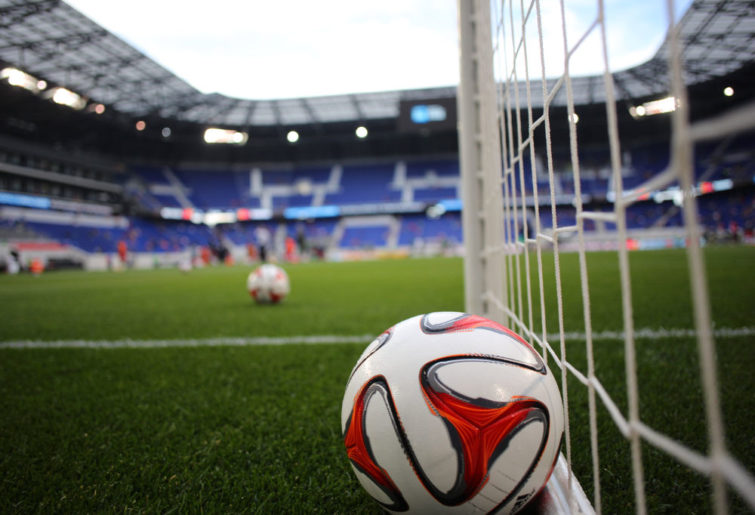
(Tim Clayton/Corbis via Getty Images)
Then Pires energetically scythed through the Italian defence (a “Tiganaesque” run, the French press called it, alluding to 1984), setting up a difficult volley for Trezeguet to hammer in and win Euro 2000.
That Trezeguet scored the winning goal was strange for a number of reasons (although not for his undoubted skill as a goal poacher). It was his only moment of glory for France, featuring in five tournaments for them but only having the chance to score four goals, the other three irrelevant. But it was also of course France’s major moment of glory, the moment of coronation of their almost unprecedented double win.
It was a moment that Henry himself, despite his superlative Euro 2000, for all of his awards and trophies and emblematic place in this team would never quite own like Trezeguet did right then, neither playing the 1998 final nor scoring in France’s other finals. C’est la vie. Pires, too, would also only have this moment to show for France, a waste given the brief greatness he would also go on to exhibit with Arsenal once safely out of the French league.
Henry, Pires and Trezeguet can all say that they were excellent players, and that they won both the 1998 World Cup and Euro 2000 on a great team, but happening so early in their careers the two facts did not particularly intersect. It’s a bizarre conundrum.
Henry would immediately assume his now secure place near the top of the tree in world football, scoring one of his greatest goals soon afterward, flicking up a simple pass with his back to goal 25 metres away, swivelling and volleying it into the air and in, for Arsenal against Manchester United. There was seemingly so much more to come, from him (there was) and from France (there wasn’t).
Please check Marty’s recaps of all European seasons and tournaments since 1998 here.
































































































